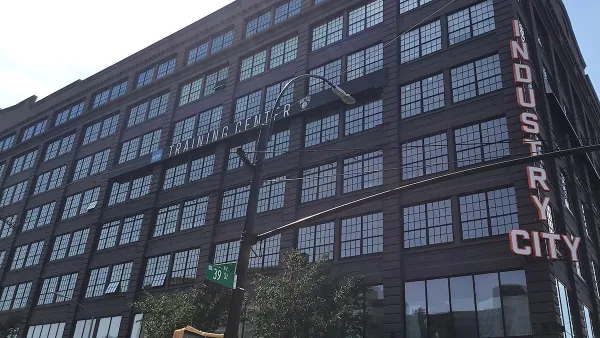On the media's responsibility for narratives that enable displacement, rather than inclusion.

Ben Adler writes a provocative piece about the tendency of the media to act like some neighborhoods didn't exist until they were gentrified:
"If you go to a gentrifying neighborhood and ask around, or just look at Census data, you will find that the neighborhood did in fact exist before it became trendy. Its population may have been lower; it certainly would have been poorer, and probably less white. But it was inhabited. And yet the media tells us otherwise, suggesting that until new residents showed up, these neighborhoods were 'a no man’s land,' still waiting to 'emerge.'"
Adler views these types of perspectives as a new version of American colonialism, with The New York Times providing the object of Adler's critique. Recent examples of the privileged perspective od colonialism includes takes on neighborhoods like Gowanus in Brooklyn and the South Bronx. Adler also finds an example in the Washington, D.C. local public radio station WAMU.
Instead of relying on easy, but false and, yes, offensive, tropes, Adler provides the following call to action:
"There is nothing wrong with news outlets reporting on these ongoing transformations, or with noting that affluent professionals weren’t looking for housing in these neighborhoods a few years ago. But heralding these population shifts as if they were filling a void — as if places lie fallow until a certain type of resident arrives — reflects exactly the sort of attitude that leads to displacement instead of integration."
FULL STORY: Hey, media: Those gentrifying neighborhoods had residents before the yuppies moved in

Analysis: Cybertruck Fatality Rate Far Exceeds That of Ford Pinto
The Tesla Cybertruck was recalled seven times last year.

National Parks Layoffs Will Cause Communities to Lose Billions
Thousands of essential park workers were laid off this week, just before the busy spring break season.

Retro-silient?: America’s First “Eco-burb,” The Woodlands Turns 50
A master-planned community north of Houston offers lessons on green infrastructure and resilient design, but falls short of its founder’s lofty affordability and walkability goals.

Test News Post 1
This is a summary

Analysis: Cybertruck Fatality Rate Far Exceeds That of Ford Pinto
The Tesla Cybertruck was recalled seven times last year.

Test News Headline 46
Test for the image on the front page.
Urban Design for Planners 1: Software Tools
This six-course series explores essential urban design concepts using open source software and equips planners with the tools they need to participate fully in the urban design process.
Planning for Universal Design
Learn the tools for implementing Universal Design in planning regulations.
EMC Planning Group, Inc.
Planetizen
Planetizen
Mpact (formerly Rail~Volution)
Great Falls Development Authority, Inc.
HUDs Office of Policy Development and Research
NYU Wagner Graduate School of Public Service



























